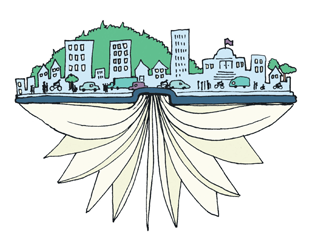
- This event has passed.
WORKSHOP SERIES Research for Community: Radical Research Skills to Break Down the Ivory Tower
April 10, 2018 @ 2:00 pm - April 12, 2018 @ 5:45 pm
Event Navigation
April 10th & 12th, 2018
Note: These workshops are open to anyone, including students and community members. We will adapt the discussion to the make-up of the room and encourage participation from diverse disciplines and backgrounds.
Les ateliers se dérouleront en anglais, mais les contributions en français sont bienvenues. Les facilitatrices peuvent s’exprimer et répondre aux questions en français.
[full workshop descriptions below]
[accessibility information and directions to the event space at the bottom]
Tuesday, April 10th
1. Alternative Sources: Amplifying Voices and Validating Grassroots Knowledge in Research // 2:00-3:30pm
2. Asking Effective Questions in Community Research // 4:15-5:45pm
Thursday, April 12th
3. Stats, Surveys & Numbers in Community Work // 2:00-3:30pm
4. Writing & Creating for Community: Accessibilize Your Research // 4:15-5:45pm
———————————————————
Workshop Descriptions
Alternative Sources: Amplifying Voices and Validating Grassroots Knowledge in Research.
Peer-review is great, but whose voices “matter” and who has access to certain forms of knowledge? This workshop takes a pragmatic but critical look at traditional academic sources and why certain perspectives get validated over others. We’ll talk about “alternative” and grassroots knowledge sources such as zines, blogs, oral history and community art practice, among others.
We hope to create a space for discussion and knowledge-sharing. We’ll also explore some tips and tricks for finding and using alternative sources, including examples. Our approach frames research from a community-driven, social justice perspective rather than a purely academic one.
Asking Effective Questions in Community Research
Personal interviews and interactions are an essential part of much community research work – but how do we know what to ask? And how do we decide how to ask it? Figuring this out can be key to closing the gap between a recognised need for information and respectful, actionable community research.
This workshop will focus on a simple methodology we use at CURE to quickly expand out an initial feeling or idea into an effective qualitative questionnaire. We will practice this skill together by brainstorming a few sample questionnaires and consider the ways in which qualitative interviewing can be appropriately approached in a community research context.
Stats, Surveys, and Numbers in Community Work
Surveys, statistics, and quantitative analysis are core tools in contemporary research work, but they can often feel unattainable to community groups and those doing community work – seeming too costly and too complicated.
This workshop will leverage CURE’s experience in survey design to give students confidence in approaching numbers in their community work. Math-phobes welcome!
We’ll give an overview of basic quantitative methods, suitable for people with any level of mathematical education or comfort. Our focus will be on the fundamentals of survey design in community work: how to build a small, effective research instrument; how to most effectively distribute your survey given limited resources; and how to accurately interpret and share the numbers you get.
Writing & Creating for Community: Accessibilize Your Research
While there has been movement from some academic circles to make research more inclusive and community-driven, academia remains largely an ivory tower. The type of language and formatting used in many academic research papers is often obscure to those outside the university bubble and acts as a barrier that keeps knowledge contained to largely privileged circles.
We approach knowledge as something that should be accessible to all. Together, we’ll discuss different strategies and formats for presenting research and making it useful in a community context. This includes an exploration of basic accessibility best-practices for diverse print, visual and digital compositions.
We recognize that the line between university and community can be fluid and that students face particular challenges when it comes to balancing accessibility considerations with sometimes rigid course requirements. These challenges will be addressed in the workshop and we particularly welcome contributions from those who have found their voices invalidated or marginalized due to their class, racial, ethnic or other background.
———————————————————–
Accessibility Info & Directions
The workshops are held in a wheelchair accessible space. For the most direct access, enter through the Mackay Street entrance of the EV Building. There are two sets of glass doors with automatic buttons, but unfortunately one of the buttons is broken. If you think you’ll require assistance, please contact us at the coordinates below.
Once inside, take the elevators to the 5th floor and turn left. The workshop space will be directly visible as a large, open space. If you are coming from the metro, take the exit directly into the EV building and then turn left at the security desk. The correct set of elevators is on the Fine Arts side of the building, across from the gallery display windows, near the Mackay Street exit.
Lighting is florescent and natural (large windows). Due to the openness of the space, we are unable to guarantee it will be completely scent free. There are accessible washrooms on the 5th floor, as well as gender neutral washrooms at EV 5.608 and EV 5.408, just down the hall from the event.
For childcare or whisper translation, please contact us 48 hours in advance. Snacks will be served, taking into account common dietary restrictions.
For more info or to make any accessibility-related requests, don’t hesitate to contact us at cassie@cureconcordia.org or 514-808-8432.
